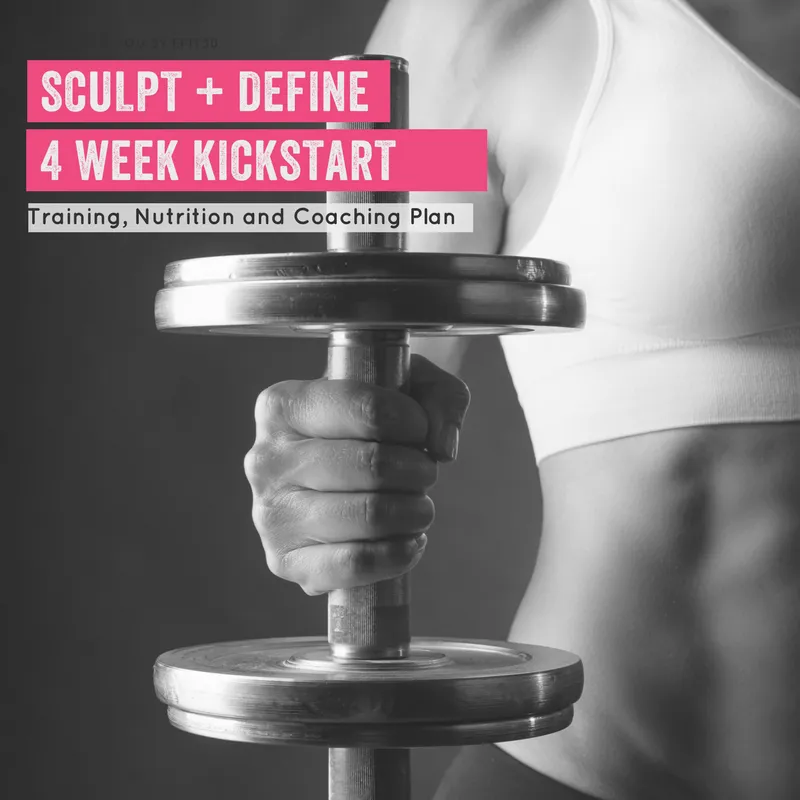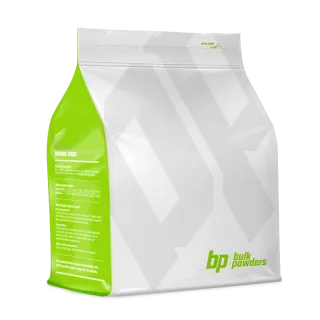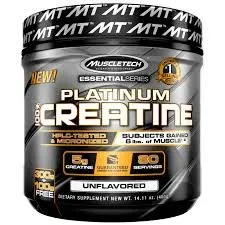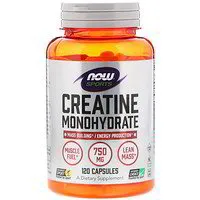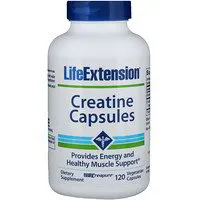Can women use creatine and is it effective?
With so many
Should you use a pre-workout supplement?
I see many people trying to use supplements to get results without addressing the basics. The strategy of taking a pill without training or eating properly is about as effective as nailing jelly to a tree. Supplements are just that
No supplement will provide any benefit unless you already have a solid foundation of consistent training and proper nutrition in place.
On the plus side, there’s no question that there are supplements that can boost your results. If you use something that offers even a small nutritional benefit, every little advantage here and there, over time and with consistency, will add up to substantial returns for you. We’ll be looking at what works, what’s hype and what’s bogus over the next few weeks starting with pre-workout supplements.
Today, we’re looking at creatine.
Creatine
Creatine is one of the safest and most effective supplements for improving exercise performance in all genders. And women are enthusiastic about embracing the use of supplements. However, a survey of Canadian female college athletes, researchers found that 80 percent were using caffeine to enhance exercise performance, but not a single one used creatine. Somewhere along the line, or maybe the whole way along the line, factual information
What is Creatine?
Creatine
When you’re training and lifting weights or doing explosive movements like sprinting or plyometrics, you
Benefits for Women
Creatine Supplementation for women
- Improved strength. Not size. Several studies have shown women improving their strength by up to 25% when supplementing with creatine. You won’t bulk (unless you’re training too).
- Enhanced power.
Creatine has been shown to significantly improve sprint performance and agility tasks in elite female soccer players. - Increased aerobic performance:
Studies have been shown to reduce the workdone by the cardiovascular system for women too. Creatine is alsocurrently being researched as a supplement to benefit certain heart problems and other health conditions. - Pregnancy: Creatine synthesis within the muscles naturally increases when women become pregnant, and
it’s been suggested that increasing creatine muscle levels is beneficial for a woman’s body during pregnancy.
** NOTE: Vegetarians
How to Use Creatine
Creatine will not do the work for you. When you stress or overload your body (positively, with weights or power work), creatine comes into play. Specifically, phosphocreatine plays a key role in the energy transport from your mitochondria to the specific muscles being stimulated. Improvements in lean muscle mass and power come about from increases in the output of these muscles when you’re supplementing with creatine.
Why haven’t women been using this?
There are a few myths and misconceptions around creatine I think may limit its popularity with women.
Bloating, stomach aches and diarrhoea
First, there’s the pervasive rumour that creatine causes gastrointestinal upset, stomach aches and diarrhoea. We know that discomfort arises using incorrect dosing and those that overdose on supplements are more likely to be younger men who are looking for big gains quickly. So don’t let this rumour put you off as there doesn’t appear to be anything substantial to support it.
Next, is bloating. Increasing muscle creatine levels increases cellular hydration in the muscle (the cells are holding more water). This means your body is hydrated. You may notice a small increase on the scales
Note: weight ‘gain’ from creatine is more common in men than women. In fact, studies reviewed shows that women can reduce body fat percentages and drop ‘weight’ while supplementing with creatine.
Avoid or minimise bloating by taking creatine when you train
What form of Creatine should I use?
Reviews of studies show that Creatine Monohydrate is not only the most common form used in research, it is also the most powerful or potent form, giving you the biggest bang for your buck.
Don’t waste your money on these forms of creatine:
- Buffered Creatine (
Kre -Alkalyn – available in one of the top women’s creatine supplements). - Creatine Hydrochloride (Con-Cret
– also sold as the active form of creatine in another of the top women’ssupps ) When ingested, both buffered creatine and creatine hydrochloride’s special effectsare negated by stomach acid. They turn into the basic creatine molecule. They’re not better or worse– just more expensive for virtually the same product. There is some suggestion that Creatine Hydrochloride is more water soluble. - Creatine Ethyl Ester
– degrades almost entirely in the intestines into the metabolite creatinine.
Watch for: Proprietary Blends
A proprietary blend is a brand’s blend of a variety of different supplements.
For example, the nutrition panel from the BPI Sports Best Creatine shows us that the container gives you 50 servings at 4g per serve.
What’s better the best form to take?
There are no significant differences between powders, tablets, or capsules. Capsules and tablets are just vessels for the powder. So use what suits you!
How Much Creatine?
If you don’t want to supplement, you can increase your creatine levels through diet
And this
Take creatine with either carbs or protein to raise insulin which will optimise creatine uptake into the muscles. You can take creatine either pre or post-workout, but it’s recommended to take it within one hour of exercise.
Drink plenty of water to ensure adequate liquids for cellular hydration.
TIPS:
If you have a powder that needs to dissolve in water, warming the water slightly helps your creatine to dissolve completely. Anecdotally, this has also
What to buy?
As a woman,
Before you buy anything, your first step is to understand the nutrition panel. Some of these products contain ineffective ingredients and minuscule dosages of otherwise quality elements leaving you with a supplement that’s
I have chosen a range of creatine monohydrate products. There are powders and tablets in all ranges. But with prices ranging from $13 and up, these are by far the most cost effect way to take creatine.
The other benefit is you can balance your supplements yourself. Personally, as a self-confessed control freak, I like to know what I am taking and to have control over what I put in my body. I find blends too tricky, or they just include ingredients that are rubbish. But it’s up to you
You will notice there are no pink packages in this little selection
Creatine Monohydrate products
These products are available in a wide range of stores. Or just jump online and have them delivered. Now you have the basics down pat, you can find your own preferred brands or products. Click through for ideas on what’s available and where
I have chosen (and I use) simple, inexpensive and effective brands that deliver what you need without proprietary blends.
Is Creatine safe?
Yes, very. I first investigated creatine for my son, 12 years old, and has a health condition. He takes it to boost his energy production as part of a supplement cocktail. I wouldn’t give him anything at all without finding out the complete picture of pros and cons.
There is no substance to the rumour that creatine is damaging to kidneys. However, if you have a health condition, it’s always a wise idea to communicate your desire to use a supplement with your doctor. She will know if you’re contraindicated or if the supplement interferes with a
Let us know how you go with creatine, what you choose and what changes you notice.
Bulk Powders
CREAPURE® CREATINE
Creapure ® is the only creatine monohydrate recommended to Australian Olympic and Institute athletes. Like all of our creatine products, ourCreapure ® creatine monohydrateis tested for purity and guaranteed to be free from any impurities.
USE CODE BPS21661FOR A $10 INSTORE CREDIT
Muscletech
PLATINUM CREATINE MONOHYDRATE
Platinum 100% Creatine is a highly bioavailable form of creatine, which ensures that your body will MuscleTech be able to ingest and assimilate the ingredient.
NEW CUSTOMER DISCOUNTS AND SPECIALS
NOW Brands
CREATINE MONOHYDRATE CAPSULES
NOW® Creatine Monohydrate has no additives or preservatives
. Body stores of creatine create a pool of readily available ATP for energy, which is necessary for fueling quick bursts of power and strength.
NEW CUSTOMER DELIVERY DISCOUNT
Life Extension
CREAPURE CAPSULES
Each creatine capsule supplies 500 mg of
easily-absorbed creatine monohydrate in an easy to swallowcapsule .
NEW CUSTOMER DISCOUNTS AND SPECIALS


